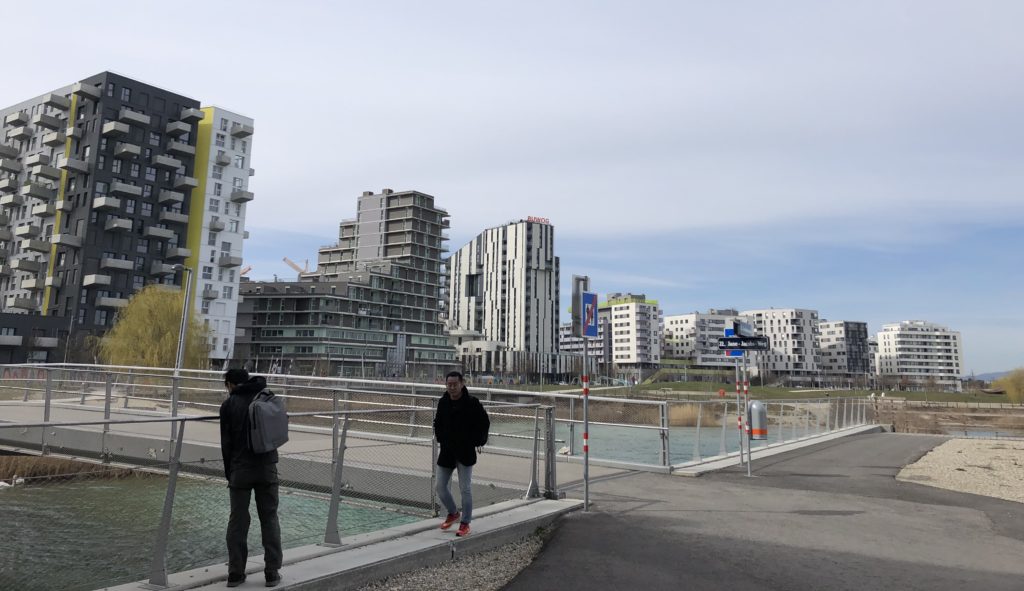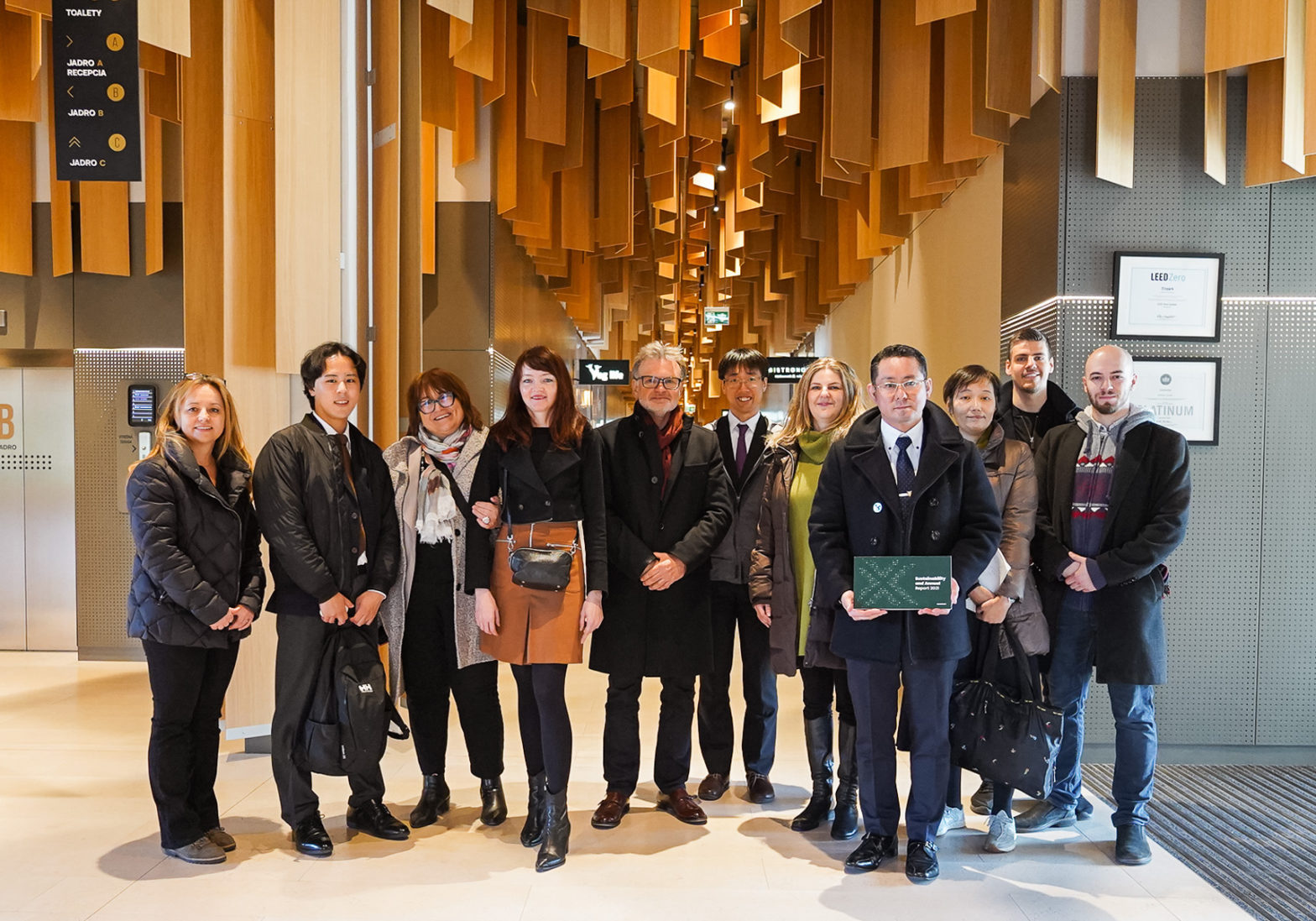Via the EU’s IURC (International Urban and Regional Cooperation) Programme, the delegation of Tokorozawa City is visiting Bratislava between 13-17 March 2023,
Day 1
The Tokorozawa delegates began the study visit by learning about Bratislava’s method for participatory urban planning, and sustainable mobility policies, as well as a historical overview of the city, They also visited Bratislava’s suburbs to see the efforts made to contain the Danube from flooding the city.
The Tokorozawa delegation was briefed by the Bratislava expert for participatory planning on how the views of vulnerable people were considered when developing a new parking policy and infrastructure that made more room for developing better pedestrian lanes and bicycle lanes. The Bratislava expert on mobility shared his experience on reducing the number of cars parking in the city by offering parking permits in which car owners were restricted to a specific zone. He also showed Bratislava was transitioning towards mobility with more pedestrians and cyclers, and tram riders for the health and wellbeing of its citizens.
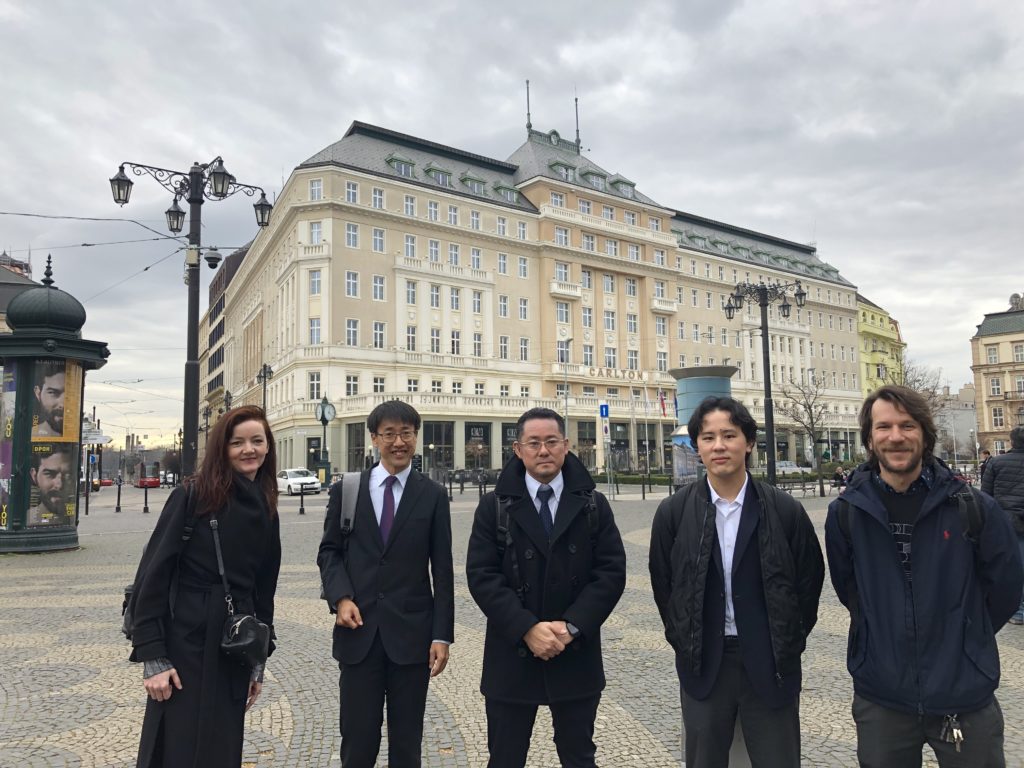
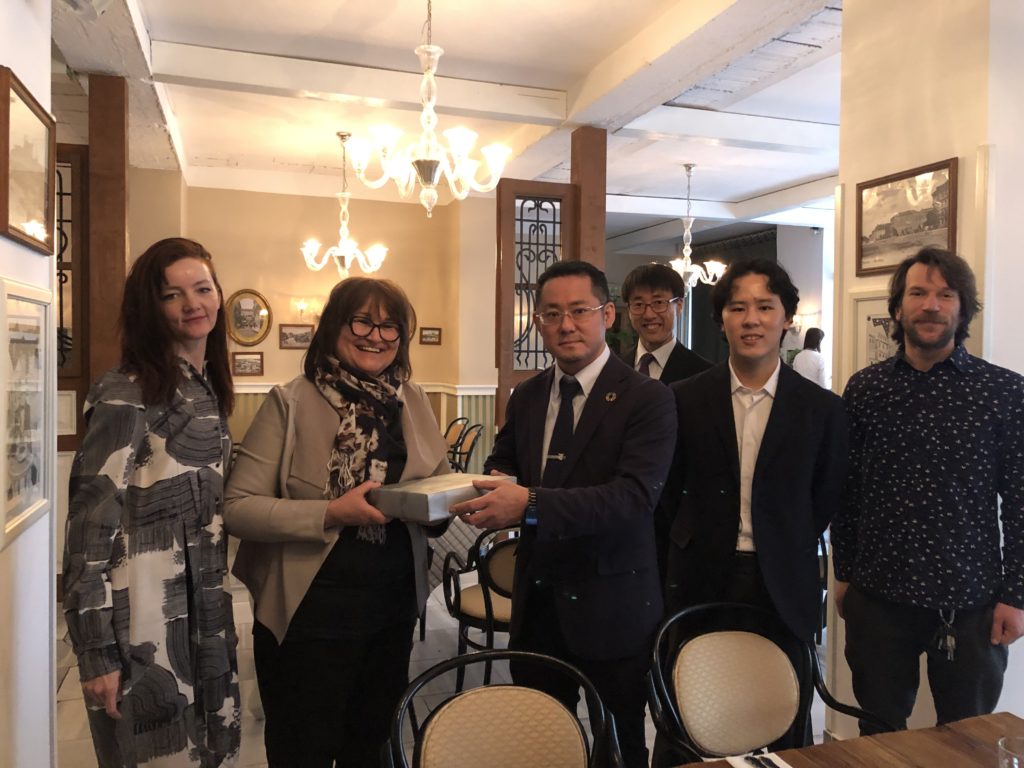
Day 2
The delegation paid a visit to Atelier, an EU-funded Smart City project aiming to create and replicate Positive Energy Districts (PEDs) within two Lighthouse Cities and six Fellow Cities. The programme members from eight EU cities discussed the PEDs with case studies included successful governance structures, financial tools, stakeholder engagement activities and outreach mechanisms that would scale up a model project and make the PED concept a sustainable effort within each municipality. Some of the participating cities indicated PEDs had a positive synergy with other EU initiatives such as SECAP and 100 Climate-neutral and Smart Cities program. Tokorozawa city participated as an observer at the discussions to understand the lighthouse project, follow its methodology and include a site visit to the location of a PED project study in Bratislava in the urban part of Petržalka. The visit to Bratislava’s brownfield development Zone Chalupkova, a part of the Skypark City, showed how unused industrial land near the city center can be transformed attractively.
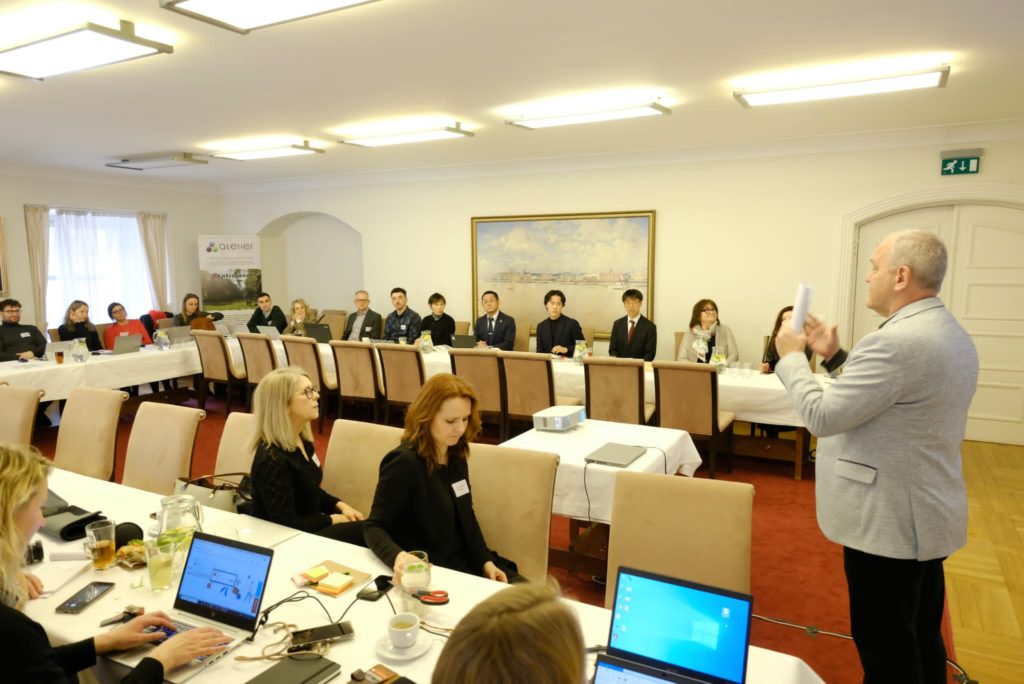
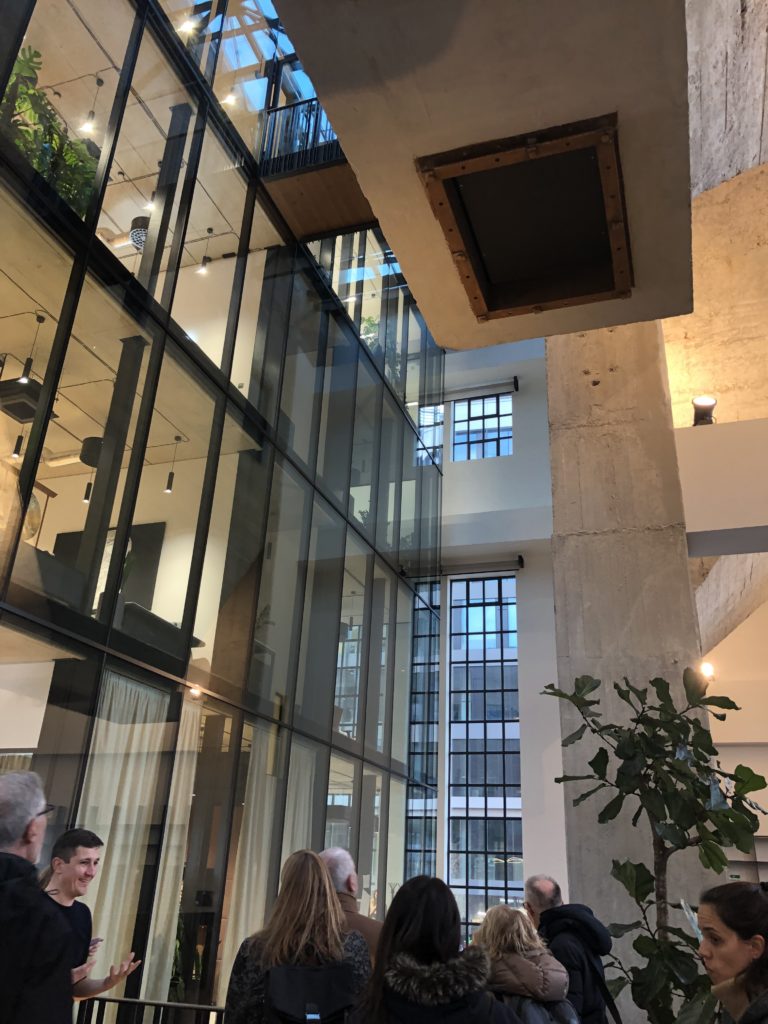
the Skypark City
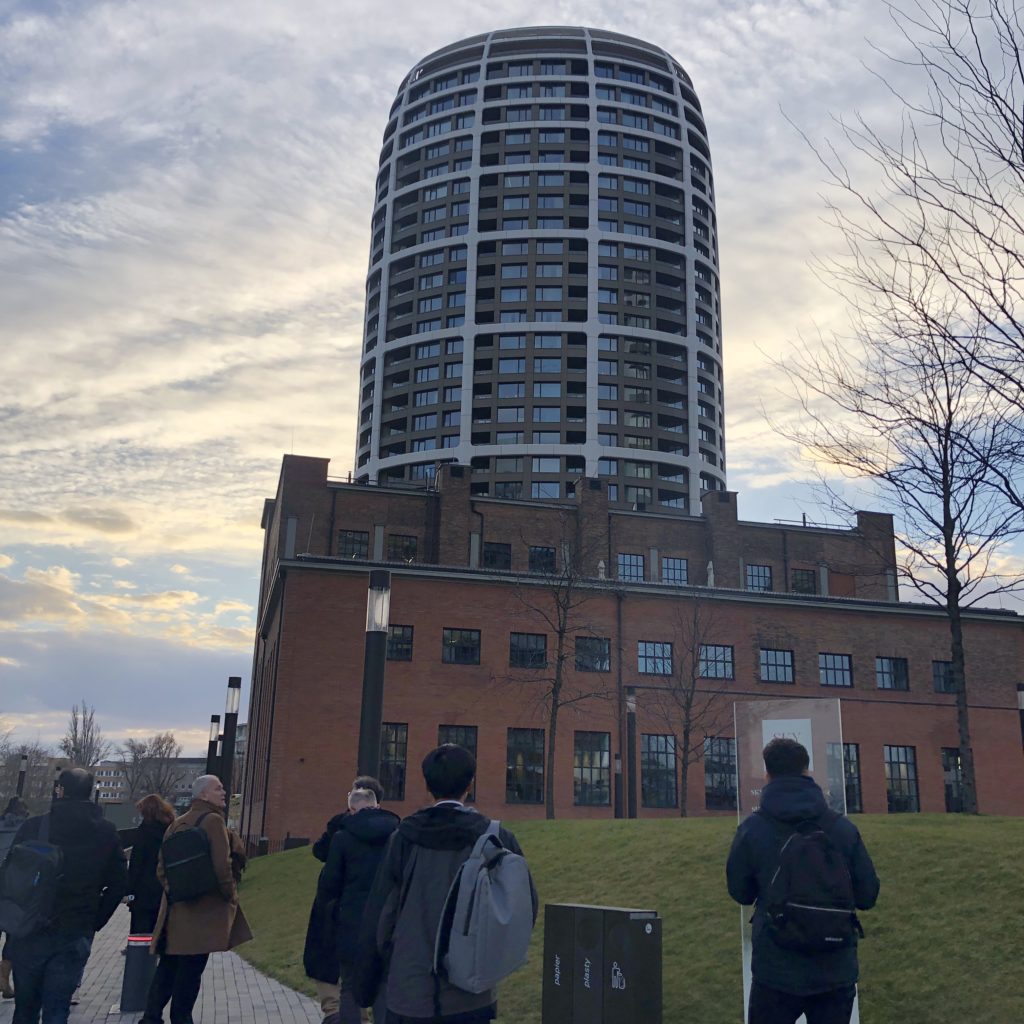
the Skypark City
Day 3
The delegates began the day with a visit to the LEED Zero Carbon and LEED Platinum certified building Einpark, which promotes an ambient working environment and a healthy lifestyle, including a parking lot of scalable EV charging stations and many other feature. The heating and cooling systems use heat pumps and chillers, utilizing the surrounding local water resources to reduce the use of energy supply from fossil fuel.
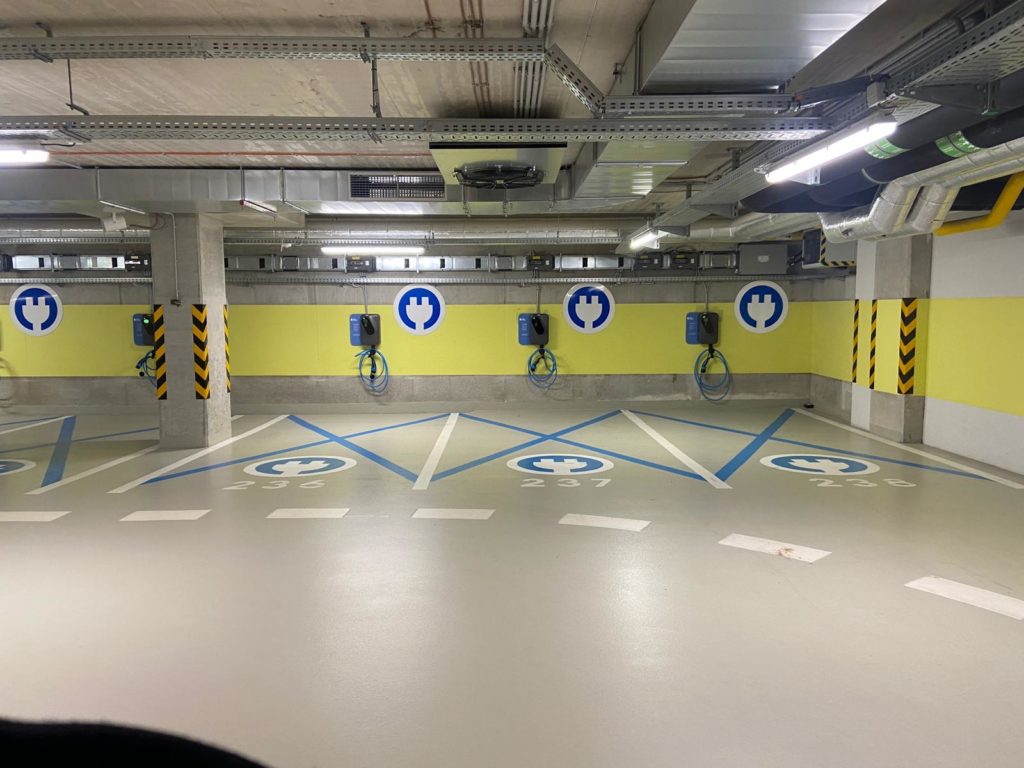
in the tenant parking lot
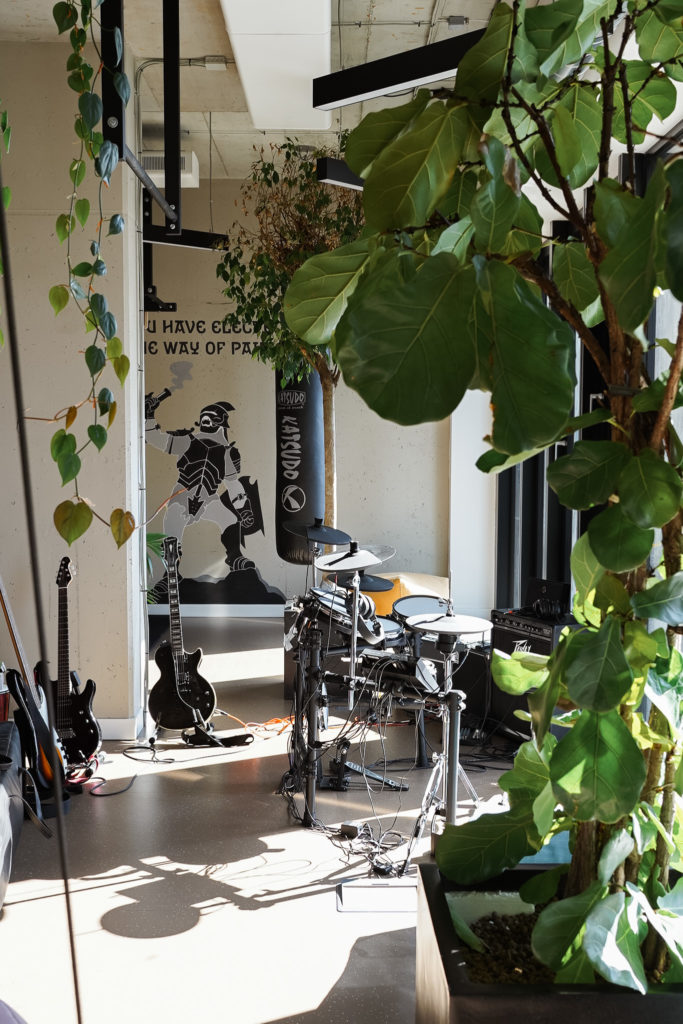
on the ceiling
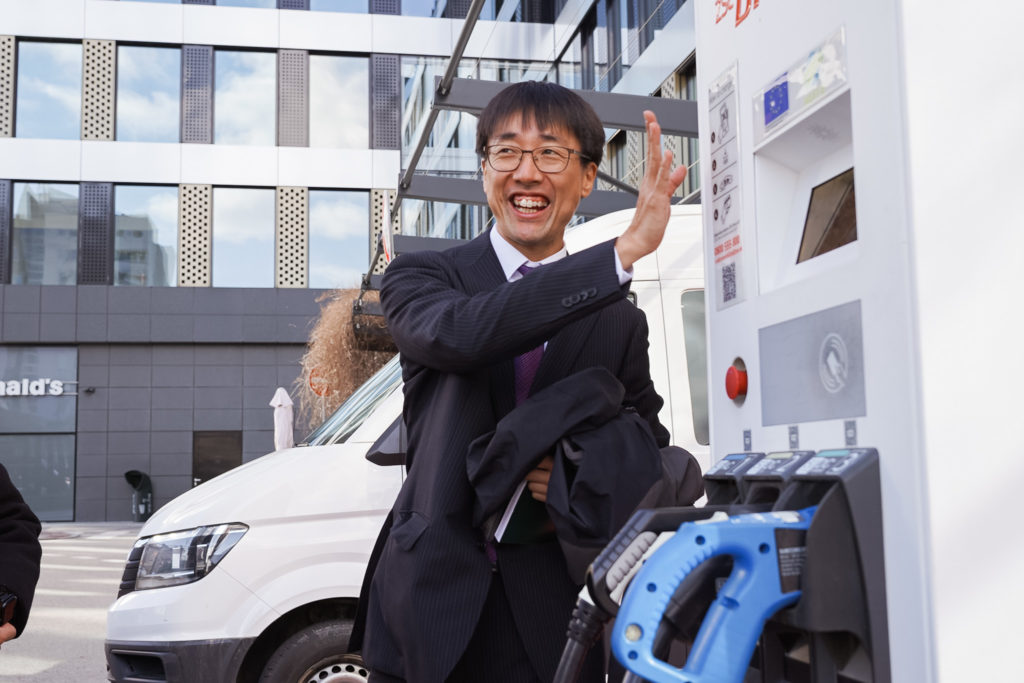
station for visitors
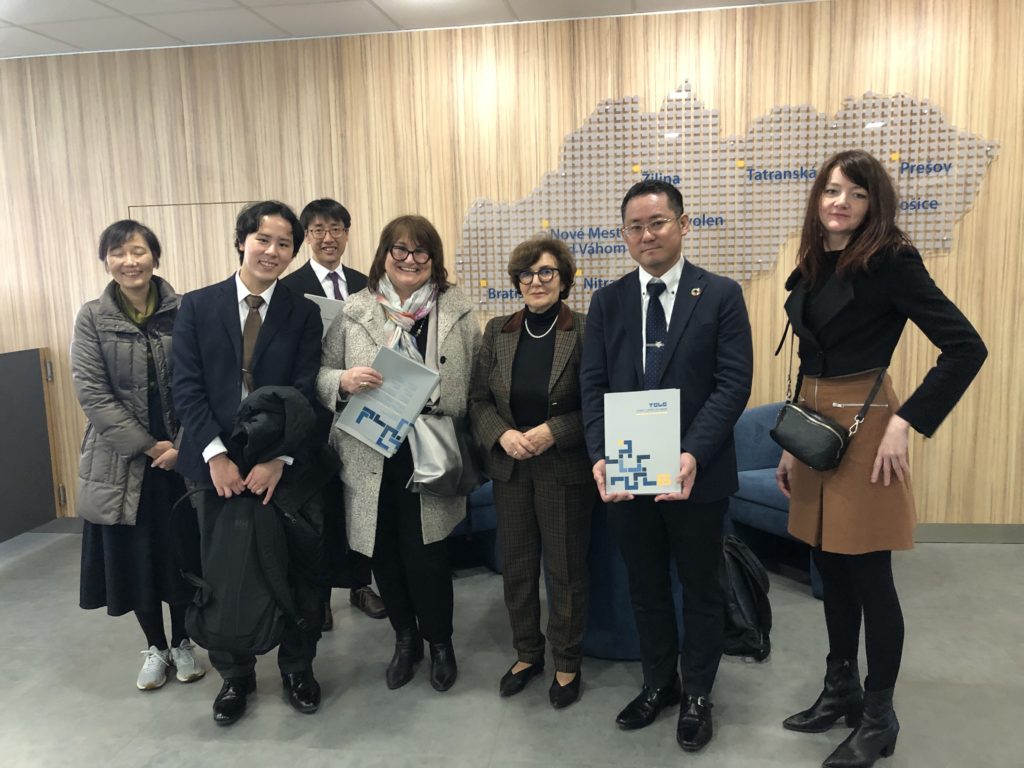
Professor Zuzana Sternová of the Building Testing and Research Institute shared the key to her successful renovation of public housing on Horova street, funded by the EU-GUGLE, was due to usage of multiple technologies for better insulation, heating, renewable sourced energy and asbestos removal.
The Tokorozawa delegation was pleased to see Bratislava’s practice of adding green shrubs and trees along their roads, removing heat in the summer while provide shade at bus stops, thereby enhancing walkability even outside of the city center. This was started after their study visit to Tokorozawa.
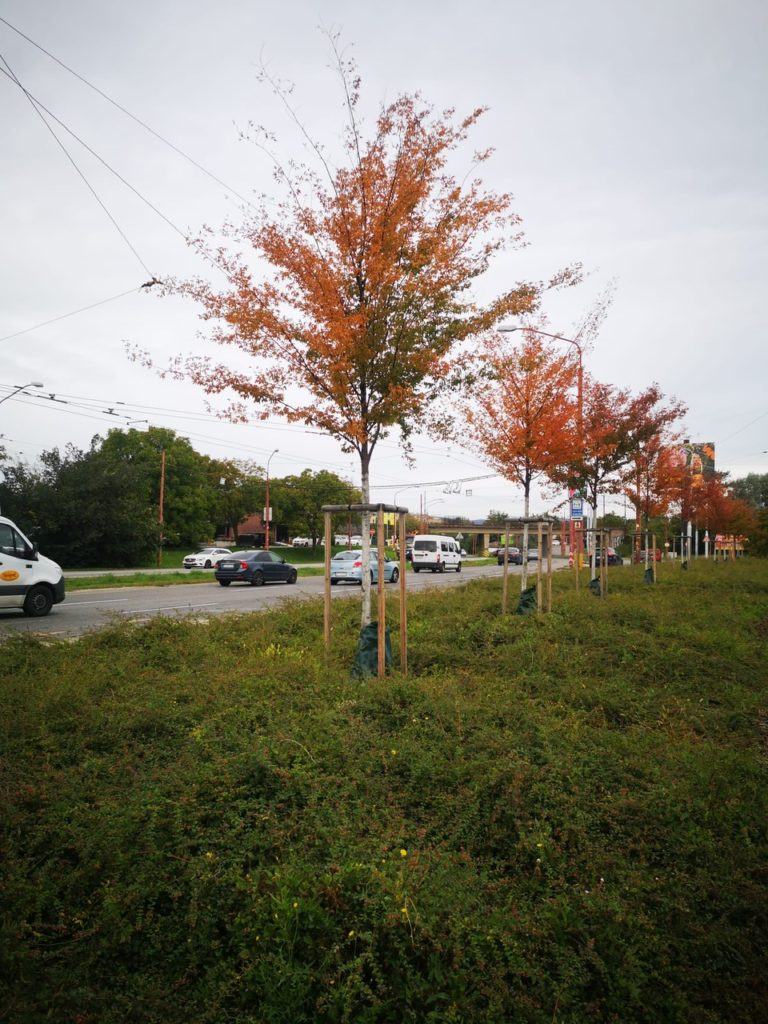
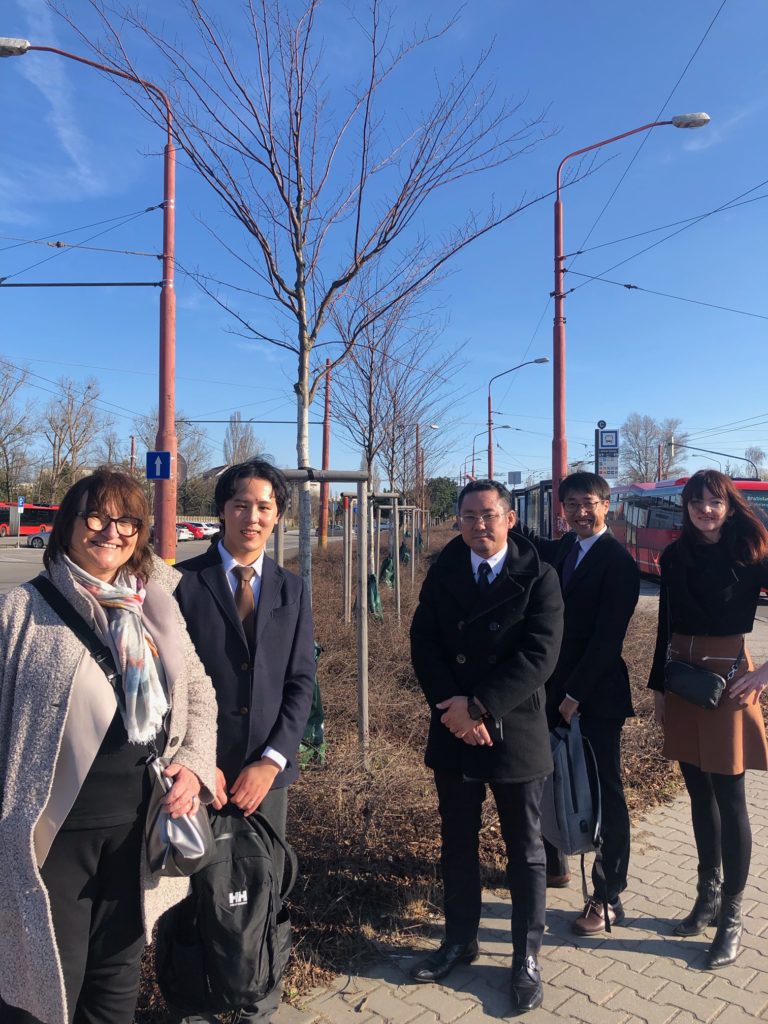
front of the planted trees
The history of the partnership between the two cities was shared with the Chargé d’Affaires of Japan who welcomed and appreciated the blossoming of a rich and meaningful collaboration at the local level.
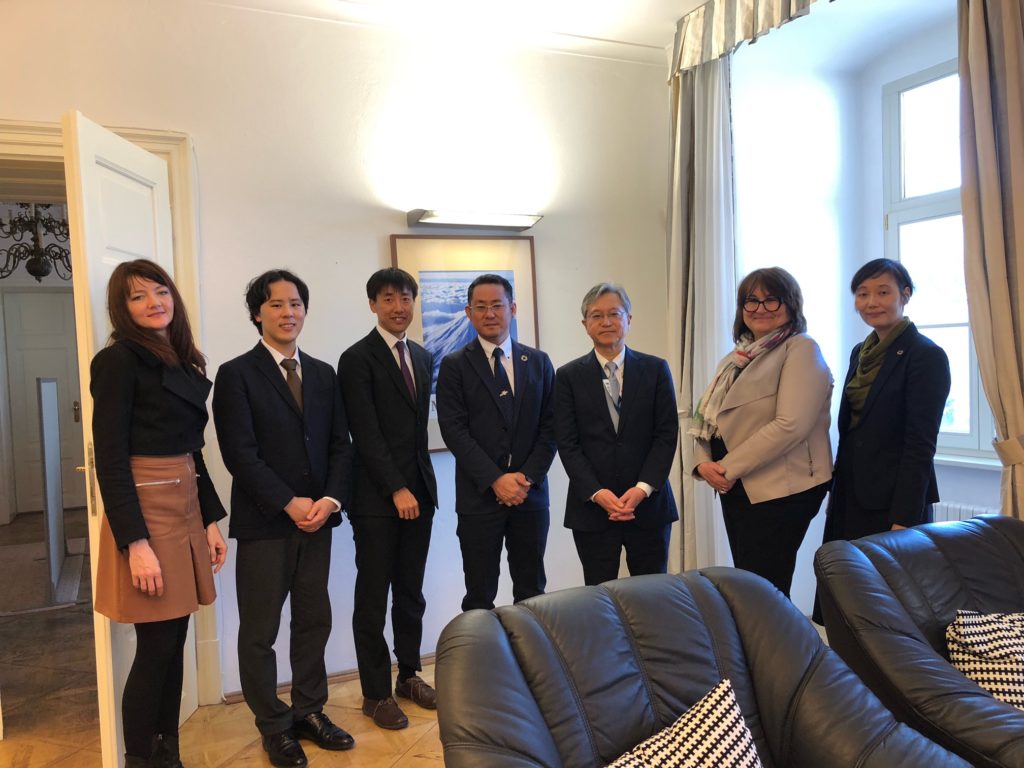
Day 4
On the final day, the Tokorozawa delegation visited the City of Vienna to understand the historical development of architecture in Central Europe. The construction of Vienna’s city center, of how it gradually expanded to its present grandiose and complex form of a mixture of architectural characters from different eras over eight centuries, was shared with the delegation. A visit to the current ongoing smart city development in Seestadt Aspern and the Economic University of Vienna, showed contemporary architecture had evolved to emphasize sustainability and wellbeing.
The delegation of Tokorozawa ended its study tour, with an understanding for Bratislava’s empathy for urban planning and architecture. The two cities will now discuss their joint actions based on their knowledge and appreciation for each other’s policies and strategies for urban development.
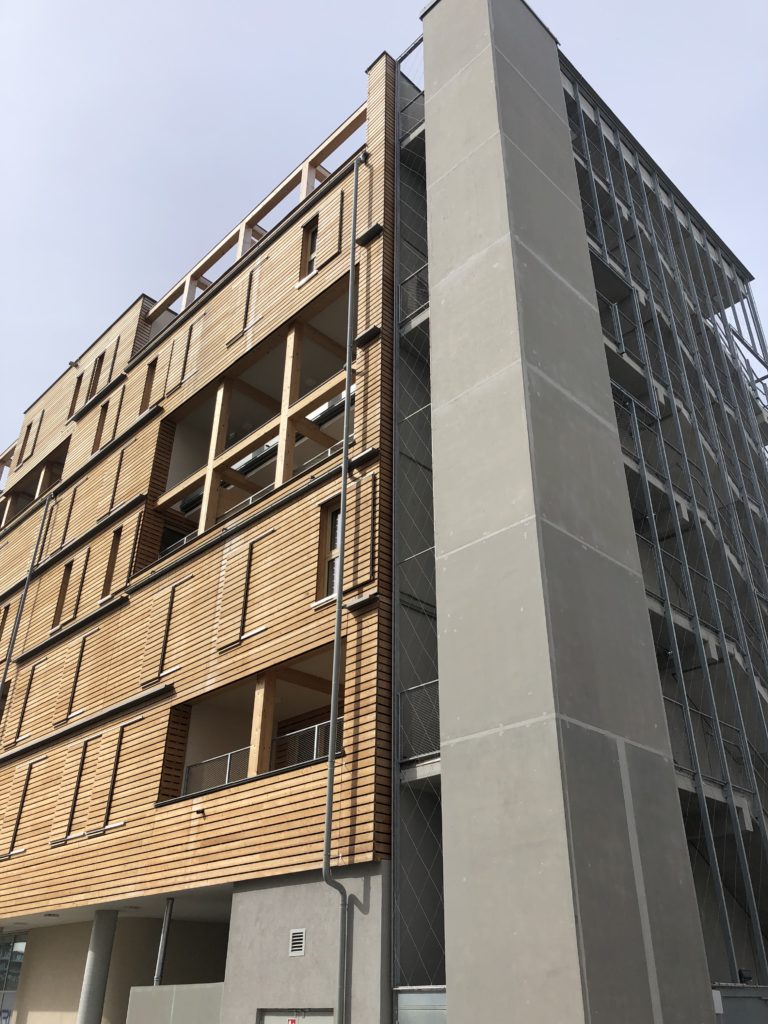
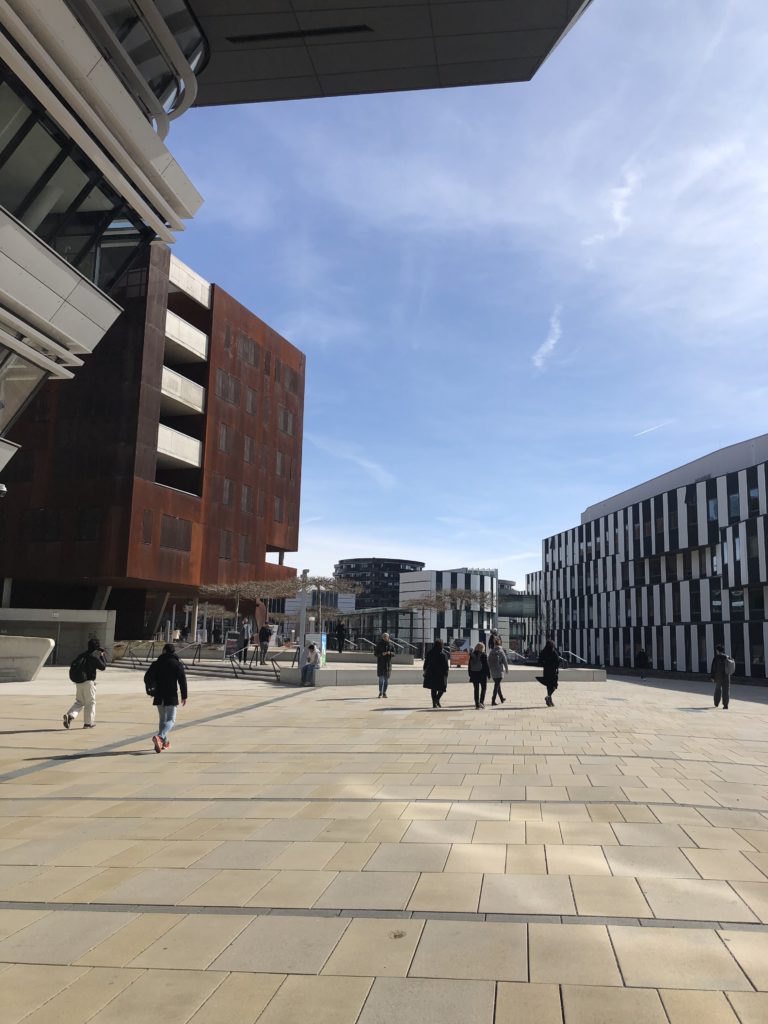
the construction of a new campus sustainability concept

